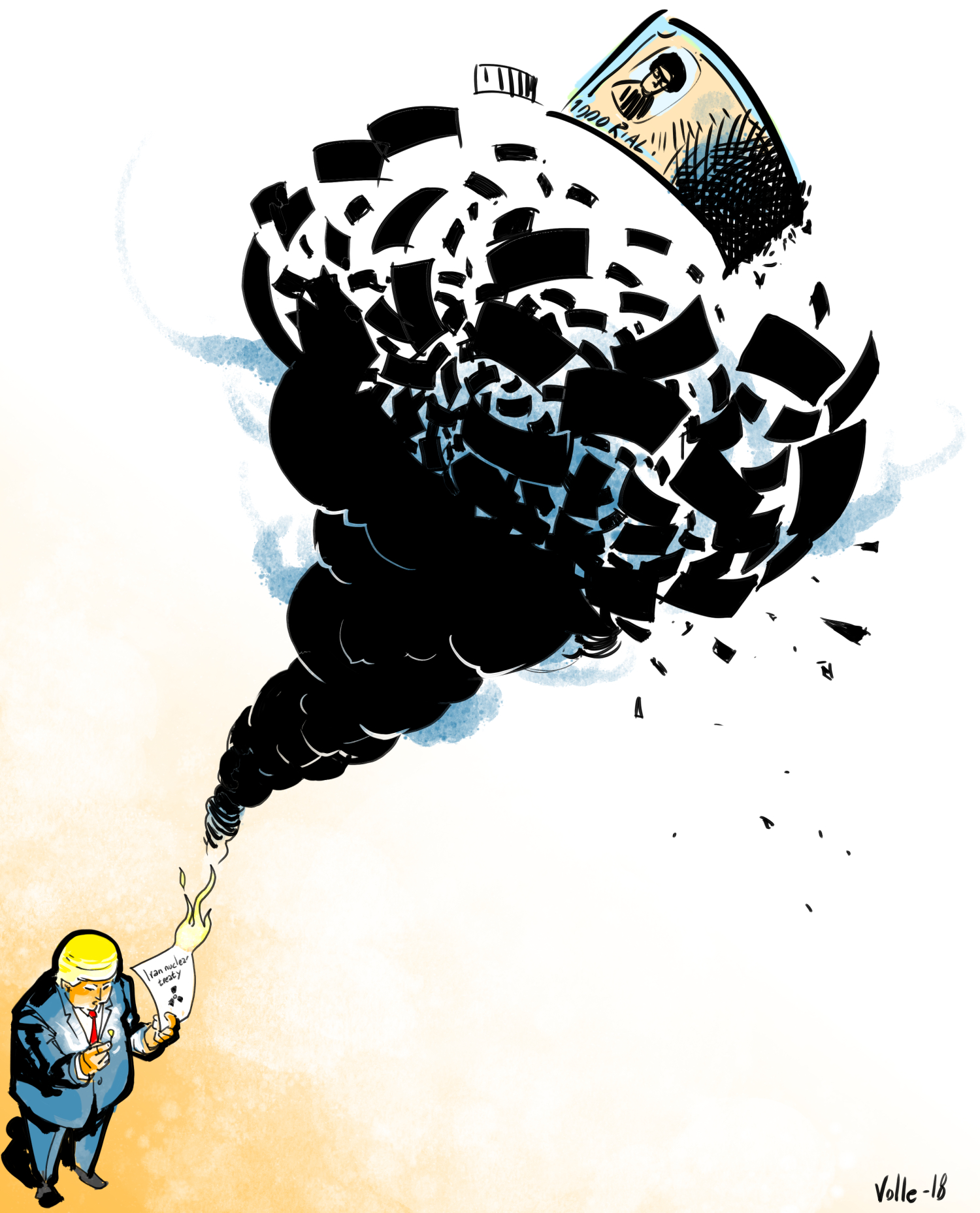Terry McDonald approach sanctions in the context of US-Iran rift.
While sanctions can be time-consuming to set up, the effects of the US withdrawal from the Iran Nuclear treaty hit the Iranian economy overnight. The traded ‘free market’ price of the rial fell to 75 000 per US dollar, falling from a 2018 high of 42,890. These numbers are somewhat approximated, though, as the Iranian government has set an official rate of 42 000 rial per US dollar, and trading at any other price has been deemed illegal.
As I have written here previously, it is likely that trying to prop up a currency price that the market has deemed inaccurate is largely futile. Arresting currency traders who are changing at market rates will not change the underlying value of the currency – like all things – currency is only worth what someone will pay for it.

Having two values for currency – official and black/free market, can have a destabilizing effect on an economy. It first of all can encourage black market activity – undermining taxation regimes, empowering criminal elements and the host of other problems associated with black market activity. It opens avenues for corruption, as those who have access to trades at the official rate will have opportunity to then profiteer at the market rate. An artificially high rate can also invite speculators to bet against it – driving up the costs of propping up the value, and the state often eventually having to capitulate and devalue the currency to more accurate market rates anyway.
Surely the Iranian government, in fixing the rate of exchange for the Rial, was at least partly motivated by trying to maintain stability. In so doing, however, they may have invited further instability, especially if market pressures force the exchange rate to eventually adjust anyway. There is no ideal way to deal with a currency crash – but pretending it is not happening is not a reasonable option.
Terry McDonald
More on the topic:
Iran rial plunges to new low after Trump decides to leave nuclear deal (Reuters 9.5.2018)

